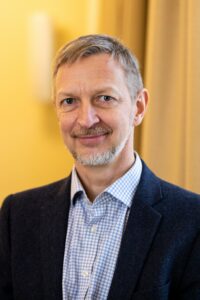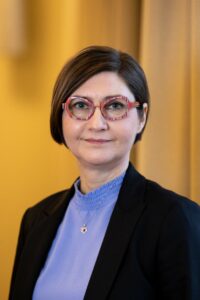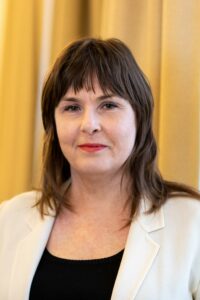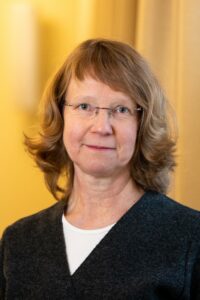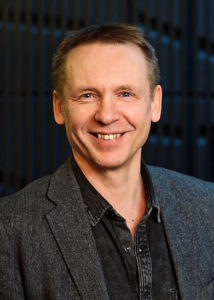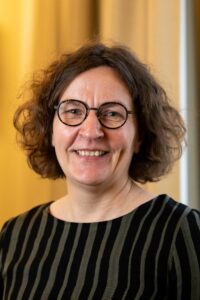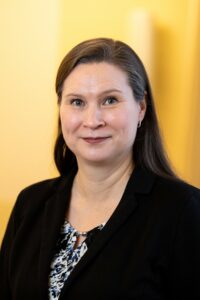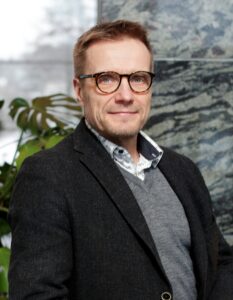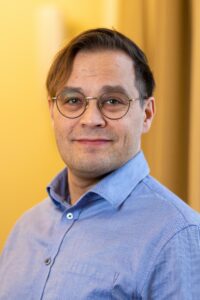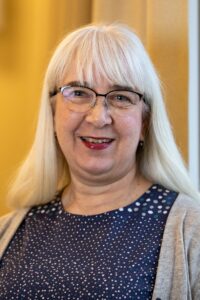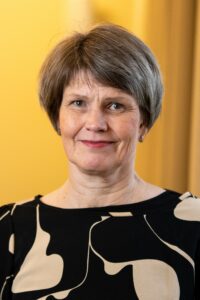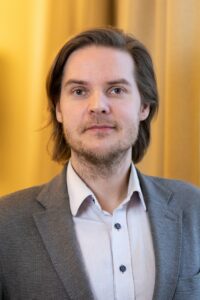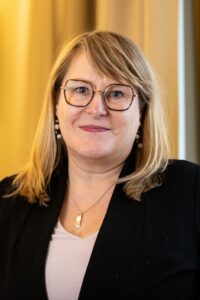Sustainability Panel 2023-2027
Lassi Linnanen, chair
I am the Professor of Environmental Management and Economics at LUT University. My areas of expertise include sustainability science, sustainability assessment and sustainability change, and I also examine these issues through the lens of environmental economics.
What are the most important aspects of sustainable development?
The most important task, both in Finland and globally, is to bring interpretations, decision-making and measures of sustainable development into line with the strong concept of sustainability. In practice, this means that ecological boundaries come first and in absolute terms, fair fulfilment of human needs comes second, and the pursuit of systems efficiency and potential economic growth comes third.
How can science help to accomplish these tasks?
The wide-ranging and versatile nature of sustainability science must be systematically reinforced through interdisciplinary and cross-disciplinary research. Promoting overall sustainability means identifying interdependencies, synergies and conflicts between the different dimensions of sustainability.
What do you want to do to promote the Panel’s work?
As Chair of the Panel, I would like to promote the ability of Finnish society to implement the necessary and urgent sustainability transformation. This requires active cooperation with the public administration, businesses and civil society alike.
lassi.linnanen(at)lut.fi
@LassiLinnanen
@lassilinnanen@mastodon.world
Anna-Maria Teperi, vice chair
I am a psychologist and a Research Professor in occupational safety at the Finnish Institute of Occupational Health. I am an Associate Professor at the University of Tampere (Human Factors in Safety Management) and at the University of Vaasa (Organizations and Management, especially Human Performance in Safety). For more than 20 years, I have been developing and researching the management of human factors, especially in safety-critical areas, and developing methods and models for improving safety in the workplace. At the core is an understanding of people and everyday life. My motto is: Let’s help people succeed!
What are the most important aspects of sustainable development?
Sustainability is a systemic phenomenon in which the economy, technology, nature and people are intertwined. We have to learn to structure, assess and support this entity through cooperation. We all need to do our part to solve the critical challenges we face during this decade. International and national sustainable development goals should play a vibrant and inspiring role in the everyday lives of people in Finland. Systematic measures already developed for working life can be used to influence the productivity of work and the development of activities, increase wellbeing and improve occupational safety. Systematic methods for managing safety in the workplace can also be used in organisations to achieve sustainable development.
How can science help to accomplish these tasks?
Science provides measured and tested information that we need to disseminate to large audiences. An important task of researchers and experts is to communicate evidence-based information in general terms so it can be widely used in solving sustainability challenges. Implementing the results of research and making them a part of everyday life are essential skills that are also useful when working to achieve sustainability goals – how can we ensure wellbeing and safety at work and maintain our ability to change in a time full of surprises?
What do you want to do to promote the Panel’s work?
As a member of the Panel, I am part of a broader research community whose strength lies in multi-voiced cooperation. Through our work on the Panel, we can present tried and tested tools and perspectives for private and public sector workplaces and decision-makers in society. I am used to working in multidisciplinary research groups where engineering, behavioural and natural science data are combined. I know how to talk about complicated things in everyday language. As a psychologist, helping people and moving forward are important aspects of what I do. I hope these skills will also be of use in my work on the Sustainability Panel.
anna-maria.teperi(at)ttl.fi
Leena Aarikka-Stenroos
I am Professor of Industrial Engineering and Management at the Hervanta technical campus at the University of Tampere. My special expertise is in technology as a business and circular economy from a business perspective; my work is at the crossroads between business, environmental sustainability, innovation and technological development. My goal is to conduct scientifically ambitious and useful research: this is why I have built networks both nationally and internationally, across disciplines and with businesses. I lead the SRC project CICAT2025 (Circular Economy Catalysts), the Center for Innovation and Technology Research (CITER) research group and the Centre for Circular Economy Research ManCEa, among others.
What are the most important aspects of sustainable development?
Many crises are challenging us to develop in a more sustainable direction, including the decline of natural resources, climate change, biodiversity loss and threats to security of supply. These issues are important for Finland at the national level, but other countries around the world also share the same concerns. From my point of view, it is important to highlight resource wisdom as a key aspect of sustainable development: instead of wasting natural resources and producing waste, all actors in society – including businesses and municipalities, decision-makers, experts, employees and consumer citizens – should learn to value materials in a new way and take climate impacts into account while moving away from unsustainable operating models. This is not easy – it requires systemic change in the use of technologies, business models, economic structures and incentives, regulation, norms, ways of thinking and criteria for decision-making, language and messaging, everywhere in society. The sustainability transformation moves slowly, but it is progressing everywhere. We can all do our part, in our own work and daily lives, as individuals and in cooperation with one another, every day.
How can science help to accomplish these tasks?
Nothing is as practical as a good theory! Research and science stem from everyday life and the real world, so it is natural that they can also be used to come up with more sensible operating models. I myself represent the industrial engineering side and my research focuses on business and innovation: for example, the circular economy and carbon-neutral business are relatively new areas, and companies and decision-makers urgently need research-based information on these to develop their operations. Through research, we gain a better understanding of how companies can implement the circular economy or how consumers perceive circular products, such as a second-hand shirt or one made from recycled fibres. In my experience, science and practice go hand in hand and support one another, and promoting sustainability is no exception: when companies, cities and people open their doors to research, we can come together to create a new understanding of how to promote sustainability and thus develop things further. Science doesn’t happen in the ivory tower, it’s a practical fellow.
What do you want to do to promote the Panel’s work?
Finnish society and the Finnish economy have to implement and enable environmental sustainability quickly. This involves reconciling the perspectives of businesses and decision-makers and taking swift action in a variety of sectors. Business logic is about profitability, so environmentally sustainable business also has to be profitable. Given this, decision-makers should also be able to adapt the operating environment and structures so that environmentally sustainable products and services are economically sensible choices for all parties. At present, circular economy solutions, such as reused concrete elements or recycled fertilisers, are subject to stricter regulations and there are hardly any incentives to choose them. And when services are taxed more heavily, it is more expensive to repair products and cheaper to buy new ones. Everyday examples like these, which have been identified by research, have a direct impact on whether we move towards more sustainable operating models and how quickly we do so. I want to use research-based knowledge to promote mutual understanding between different parties and accelerate the practical transition to sustainability using clear language.
leena.aarikka-stenroos(at)tuni.fi
@LeenaAarikka
Minna Halme
I am Professor of Sustainability Management and leader of the Sustainability in Business research unit at Aalto University School of Business. My research focuses on sustainable business models, co-creation of sustainable innovations and the systemic sustainability transformation of business in a global context.
What are the most important aspects of sustainable development?
Globally, the most important sustainable development challenges are climate change, increasing inequality and the decline in natural resources and biodiversity. The challenges related to sustainable development in Finland are not separate from the global sustainability challenges.
How can science help to accomplish these tasks?
A wealthy country like Finland can set an example and create solutions that would not be possible for low-income countries with less highly skilled populations. Scientists know a great deal about the problems related to sustainable development and the possible solutions. Their participation in the public discussion and in implementing sustainable development plays a key role. Research is funded by society, so that expertise should be put to good use.
What do you want to do to promote the Panel’s work?
The Panel can help ensure that scientific knowledge is put to good use by acting as a channel and a voice for researchers to communicate with decision-makers. I personally have a lot of contact with businesses – both as a critic of current practices and as a co-developer of new sustainable business solutions. I also participate in topical economic discussions as a catalyst for new ways of thinking and operating. I am able to interpret natural and societal information into the language of business life. I would like to use these skills on the Panel, and I would like to see the Panel help policymakers better understand what kind of business produces sustainable value and what destroys the wealth and wellbeing of society.
minna.halme(at)aalto.fi
@minna_halme
Jouni Jaakkola
I am Professor of Public Health at the University of Oulu and Director of the WHO Center for Environmental and Respiratory Health (CERH). My fields of expertise are global public health, health impacts of the environment and the relationship between climate change and health.
What are the most important aspects of sustainable development?
It is important to identify the limits of global growth and take fair sustainable development into account in all future planning. Finland has the opportunity to lead the way in sustainable development and contribute to sustainable development globally. The most important global sustainable development issues include promoting healthy and sustainable lifestyles, managing population growth, climate change and air pollution, clean energy production, sustainable food production and access to clean water.
How can science help to accomplish these tasks?
Multidisciplinary research helps us understand the limits to growth on our planet based on current activities and allows us to assess future developments. Science enables us to identify and measure problems, find solutions and develop meaningful sustainable development indicators that we can use to conceptualise the state of the world, communicate about it and assess the impact of different measures and agreements on development.
What do you want to do to promote the Panel’s work?
I would especially like to bring the health perspective and consideration of the boundaries of global growth to the Panel’s multidisciplinary discussions and to the possible action plan and its implementation. I am prepared to engage in public discussion and exert influence both as an individual and as a member of the Panel.
jouni.jaakkola(at)oulu.fi
@jouni_jaakkola
Minna Kaljonen
I am the Research Professor of Fair Sustainability Transition at the Finnish Environment Institute. My research has expanded from environmental politics to the politics of sustainability transition, its governance and practices. My research is transdisciplinary – I work together with different actors to study and identify solutions to sustainability challenges.
What are the most important aspects of sustainable development?
We are living at a time of major social and ecological changes. Climate change and biodiversity loss affect every individual, employee, sector and administrative branch. In any transition, there are always winners and losers. The idea behind sustainable development is that social and economic impacts are taken into account when developing new operating models. In the future, we also have to focus more on how climate change and biodiversity loss challenge the pillars of our economic and social activities and the structures of political decision-making. This way, we can look for paths that will help us build a fairer and more sustainable society. We must be courageous and thoughtful at the same time.
How can science help to accomplish these tasks?
Sustainability science is most effective when it is transdisciplinary. That also means involving different actors in society when finding and testing new, more sustainable practices. This is how science and research also learn. This does not make research less reliable. On the contrary, research can offer methods for comparing operating models with different indicators and mechanisms and for developing them further. At its best, sustainability science is critical. It helps us renew our value base.
What do you want to do to promote the Panel’s work?
I hope we can take sustainability science and research to new places, not just to the chambers of power. I see civil society as a major driver for change, especially when it comes to changes in values. The Sustainability Panel can contribute to creating and supporting structures for mobilising this momentum for change. I also want to make sure that different administrative branches and ministries have to look beyond their own sectors and learn from one another.
minna.kaljonen(at)syke.fi
@MinnaKaljonen
Päivi Kinnunen
I am the Research Professor of Circular Economy of Energy Metals at VTT Technical Research Centre of Finland and an Associate Professor in circular economy process techniques at the University of Tampere. My research has focused on sustainable metal production methods, holistic use of material flows and closing industrial water circulations. My background is in technological development and business sciences.
What are the most important aspects of sustainable development?
Sustainability must be comprehensive and take into account ecological, economic, social and cultural perspectives. Important topics include a clean environment, clean water and clean energy production. Many different raw materials are also needed for the production and storage of renewable energy. The circular economy is an important tool for maximising the utilisation of material flows, converting side streams into valuable materials and generating business.
How can science help to accomplish these tasks?
Research makes it possible to develop sustainable technologies that help solve existing environmental challenges and prevent the emergence of new ones. It is often the case that environmentally friendly technologies are also more sustainable from an economic point of view, as raw materials, water and energy are utilised as effectively as possible. Research data provides a basis for decision-making in society and business life in order to create sustainable growth and wellbeing.
What do you want to do to promote the Panel’s work?
Sustainability issues are so extensive that solving them requires multidisciplinary approaches and expertise in different fields. I want to bring an understanding of circular economy technologies and develop coordination between different sectors so that we can solve the major challenges facing our society. Cooperation lays the foundation for scientific and technological breakthroughs.
paivi.kinnunen(at)vtt.fi
www.linkedin.com/in/paivikinnunen
Mikko Mönkkönen
I am Professor of Applied Ecology at the University of Jyväskylä. My multidisciplinary research focuses on the sustainable use of natural resources, especially issues related to the use of forests. The goal of my research is to come up with policy instruments and forest management methods that enable the use of natural resources in a way that implements sustainable development criteria and goals more comprehensively. A particular challenge is how to better reconcile the objectives of the bioeconomy, climate change mitigation and the preservation of forest biodiversity.
What are the most important aspects of sustainable development?
Climate change and the growing pressure to use renewable natural resources challenge us to find ways to prevent and repair the resulting losses to biodiversity and the functioning of ecosystems. Globally, it is important to break the strong link between the increase in human wellbeing and the increase in the use of natural resources. Putting an end to unsustainable development requires measures whose costs must be distributed equitably.
How can science help to accomplish these tasks?
The transition to sustainability requires a transformation that permeates every sector of society. Multidisciplinary research helps us identify the factors – whether knowledge and skills-related, institutional, strategic or normative – that stand in the way of the sustainability transition and find ways to remove these obstacles.
What do you want to do to promote the Panel’s work?
I want to promote the concept of planetary wellbeing, the understanding that our own wellbeing depends on the wellbeing of the environment and the biosphere. I believe in dialogue and the power of shared understanding in the pursuit of sustainable development.
mikko.monkkonen(at)jyu.fi
@MMonkkonen
Ilkka Ratinen
I am the Professor of Sustainability and Nature (Outdoor) Education at the University of Lapland. My background is in physical geography and education. My multidisciplinary research is related to solving sustainability issues and enhancing sustainability competencies. At the moment, I am especially focusing on sustainability competencies and applying the results of my research to developing teacher training.
What are the most important aspects of sustainable development?
I think that humans have managed to exceed the planetary boundaries in many ways thanks to their skills. Exceeding the boundaries can be seen in the form of climate change and biodiversity loss, which humans need to resolve by coming up with new ways to produce sufficient, just wellbeing for everyone. This goal is ambitious, but it is necessary on a planet with limits.
How can science help to accomplish these tasks?
Science is a self-correcting process and the only way to produce information that shows us how to guide human activities, for example through recommendations and regulations. Understanding the need for the sustainability transformation means that we must examine the results of extensive global measurements at the local level, both in nature and in people’s everyday lives. In order to verify that the sustainability transition is taking place, we need information on how various sustainability measures can be scaled in a way that is both effective and fair. However, producing scientific information alone is not enough. We also need to take research data into account in legislation and political decisions.
What do you want to do to promote the Panel’s work?
Together with the other panellists, I want to advance the achievement of Finland’s climate and biodiversity objectives for the benefit of nature and humankind. For us and for the generations to come.
ilkka.ratinen(at)ulapland.fi
@RatinenIlkka
Arto O. Salonen
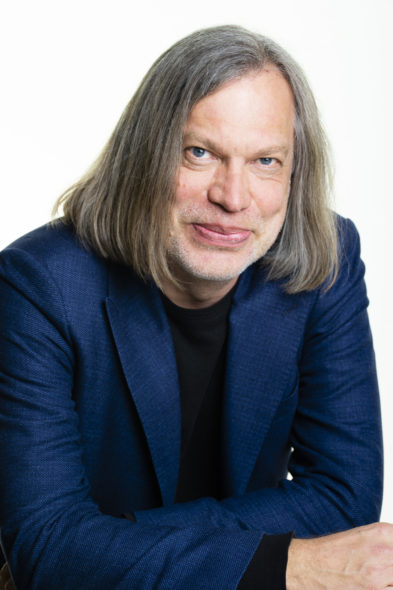
I am a Professor of Sustainable Wellbeing at the Department of Social Sciences at the University of Eastern Finland. I focus on sustainability transformations from the viewpoint of citizens’ experiences of life satisfaction and dignity.
What are the most important aspects of sustainable development?
It is essential to recognise that even if there is dependence between ecological, social, and economic points of view, there is also a hierarchy between them. Without an environmental foundation, social life cannot exist, let alone the economy. Mainstreaming sustainability transformation towards a sustainable future demands us to focus on things that are positive, inexhaustible, and accessible to everyone. These factors for a good life include knowledge, trust, life satisfaction, the joy of life, and experiences of dignity.
How can science help to accomplish these tasks?
Comprehensive and systemic cultural change is challenging, but it is possible. An interdisciplinary approach helps us understand how to create positive scenarios for the future and how to turn these scenarios into actions and reality. Science helps us recognise that in welfare societies such as Finland, maximising subjective wellbeing and experiences of dignity means shifting away from material life goals towards more interpersonal and altruistic life goals.
What do you want to do to promote the Panel’s work?
More or less, all countries in the world are aiming for carbon neutrality by 2050. Through my work, I want to help Finnish society become a model for this planetary transition, where we create solutions for wellbeing so that there is enough for all forever.
arto.salonen(at)uef.fi
@artoOsalonen
Katriina Siivonen
I am a Senior University Lecturer in Futures Research and Adjunct Professor of Cultural Heritage at the University of Turku. My background is in ethnology. I serve on the Expert Panel on Sustainable Development as an expert in futures research and the cultural sustainability transformation. For more than 20 years, my work has focused on the role of culture in the transformation towards a more sustainable world. It is essential that we understand the opportunities brought about by the inevitable change in culture and the power of that change in promoting sustainability.
What are the most important aspects of sustainable development?
Ensuring that human life is within the limits of the Earth’s carrying capacity is a key issue in sustainable development, both in Finland and globally. This objective poses different challenges for different parts of the world. Brundtland’s 1987 report wisely pointed out that ecological sustainability cannot be achieved unless we look after social and economic sustainability globally. Culture can contribute most strongly to sustainable development when we understand that culture consists of the ways people live and function in the world as part of nature, and that it is constantly changing. Without goal-oriented cultural change, we will not be able to achieve ecological sustainability in everyday life, politics and economic activities. Human rights and equality are key elements supporting this change.
How can science help to accomplish these tasks?
To assess sustainability continuously, we need research-based information on the changing state of nature, culture and society. Without this information, we cannot make culture ecologically sustainable in a way that respects human rights and equality. It is important to recognise the impacts of food, energy and material production on the climate, biodiversity and pollution, and to understand people’s lifestyles and ideas about their own involvement in the natural cycle. We need research that enables people to participate in the goal-oriented transformation of culture – and consequently everyday life, politics and economic activities – in a more ecologically sustainable direction while respecting human rights and equality in line with research ethics.
What do you want to do to promote the Panel’s work?
I would like to continue promoting the cultural sustainability transformation in different sectors of society, both in central government and among other actors through broad-based participation. The cultural sustainability transformation operates in the context of overall sustainability and is guided by the limits of our planet. It supports new types of ecosocial understanding and culture and leads to the development of measures that will help us move towards a cultural sustainability transformation. Many artists have taken up this challenge. NGOs, museums and libraries are also engaging in important work in the cultural heritage sector. All of this creates opportunities for people to actively seek out information and co-create a new kind of sustainable activity and relationship with nature, and it deserves the support of the state and Government.
katriina.siivonen(at)utu.fi
@KatriinaSiivone
Katriina Soini
I am a Research Professor of Sustainable Natural Resources Governance and head of the research area on Resilient Society at the Natural Resources Institute Finland. I collaborate extensively with various universities and research institutes both in Finland and internationally on research projects and in supervising postgraduate students. I have always been interested in relationships between people and nature, but also in relationships between people. My idea was that these relationships need to change in order to foster sustainable development. That’s why I decided to study cultural geography. In recent years, my research has drawn inspiration from thinking, key objectives, theories and methods of sustainability science.
What are the most important aspects of sustainable development?
Many great things are already being done to promote sustainable development, or the sustainability transition. However, sustainability is a complex phenomenon. For me, the most important thing is to try to understand entities, interdependencies and relationships between phenomena and actors. When we look at sustainability, we absolutely have to take into account temporal and regional dimensions, as well as values and power relations.
How can science help to accomplish these tasks?
All fields of science are needed in order to understand and solve sustainability problems. Interdisciplinary and cross-disciplinary research is particularly important. Scientists may be very enthusiastic and have a great deal of faith in what they do, but science and individual researchers must also be reflective of their work. The complex nature of sustainability means it is also important to identify the constraints within which we produce sustainability information.
What do you want to do to promote the Panel’s work?
I would like to act as a builder of dialogue between different disciplines, sectors and groups of people. I also hope that I can help to structure and clarify the sustainability debate and the misunderstandings that often arise because we do not listen to each other well enough.
katriina.soini(at)luke.fi
@katriina_soini
Niko Soininen
I am a Professor of Environmental Law at the University of Eastern Finland, and I was previously Assistant Professor of Sustainability Sciences at the University of Helsinki. I lead a research group on sustainability law at the University of Eastern Finland and I study the role of the legal system in the sustainability transition. I have also been involved in a number of ministerial projects supporting the preparation of legislation.
What are the most important aspects of sustainable development?
The most important thing is to ensure a just transition to a social and economic system that operates within the ecological limits of the planet.
How can science help to accomplish these tasks?
Science plays an important role in assessing possible measures and their impacts, along with the societal, economic and legal feasibility of the sustainability transition.
What do you want to do to promote the Panel’s work?
A natural task for me on the Panel is to assess the legal feasibility of sustainability measures and the needs and possibilities for amending legislation. In my work, I also build bridges between the perspectives produced by different fields of science and the information needed by decision-makers.
niko.soininen(at)uef.fi
@Niko_Soininen
Reetta Toivanen
I am an anthropologist and ethnologist specialising in human rights, especially minority and Indigenous rights, and a Professor of Sustainability Sciences at the University of Helsinki. In recent years, I have been particularly interested in critical research on the global goals of sustainable development and the green transition. I have aimed to highlight that global sustainability goals are political compromises; goal-oriented sustainability work needs to be deeper and more long-term.
What are the most important aspects of sustainable development?
The most important thing is to make people understand what kind of policy promotes a sustainable future and to ensure that people can distinguish between science and opinions. Activities can only be sustainable if they take into account everything and everyone, in the present and in the future. There are no easy solutions. It is also time to reject the idea that one sustainability actor or goal can be prioritised over another; we have to understand that because everything is interconnected, only holistic solutions can be sustainable.
How can science help to accomplish these tasks?
Science can help through experimentation and development – but also through policies that rely heavily on scientific results. Economic and political actors have to learn to listen to science. As a human scientist, I find that people often become frustrated when we don’t have simple solutions to wicked problems. That said, robust and consistent funding for science, independent of political policy, is the only way to a sustainable future.
What do you want to do to promote the Panel’s work?
I want to be part of this multidisciplinary group of experts and consider issues together, even difficult ones. I aim to ensure that we have a clear channel of discussion not only with Parliament but also with important officials in the ministries. It is not enough to have clear messages. Decision-makers must also understand their content. For my part, I aim to highlight the perspective of Indigenous research and holistic research in the humanities.
reetta.toivanen(at)helsinki.fi
@ReetToi

